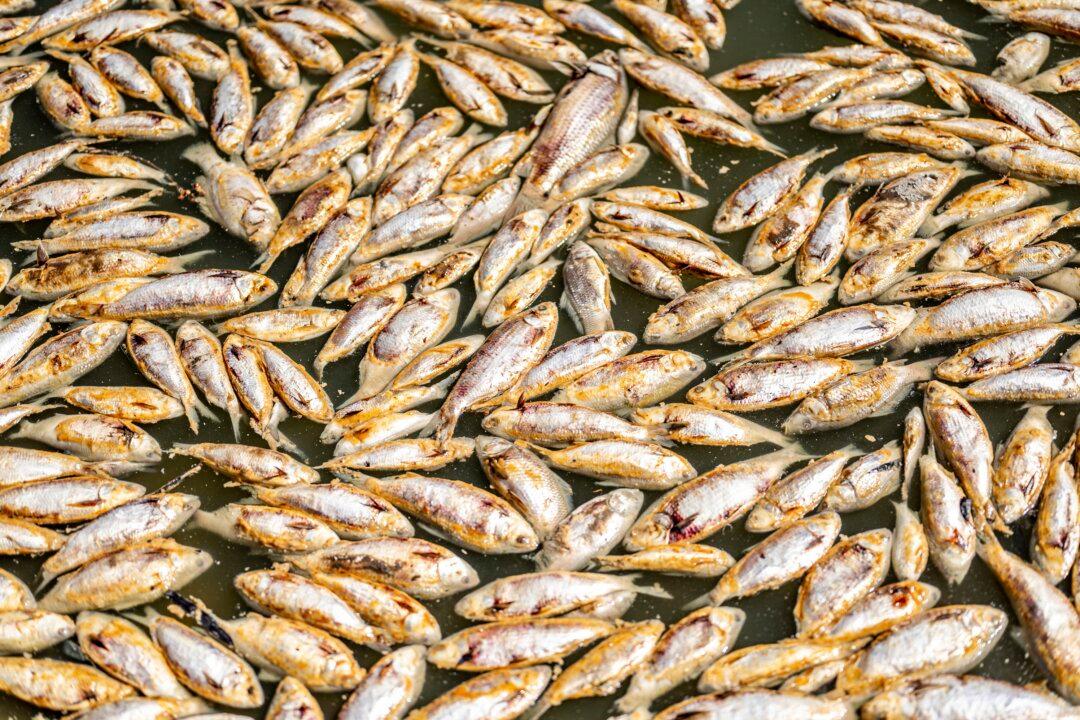Potentially toxic algae has been found in the Darling-Baaka River in outback New South Wales (NSW), as small clusters of dead fish continue to wash up a fortnight after a historic mass kill.
Millions of dead fish surfaced at Menindee in mid-March due to low levels of dissolved oxygen in the water, known as hypoxic blackwater, a condition made worst by prolonged floods and unseasonal heatwaves.





